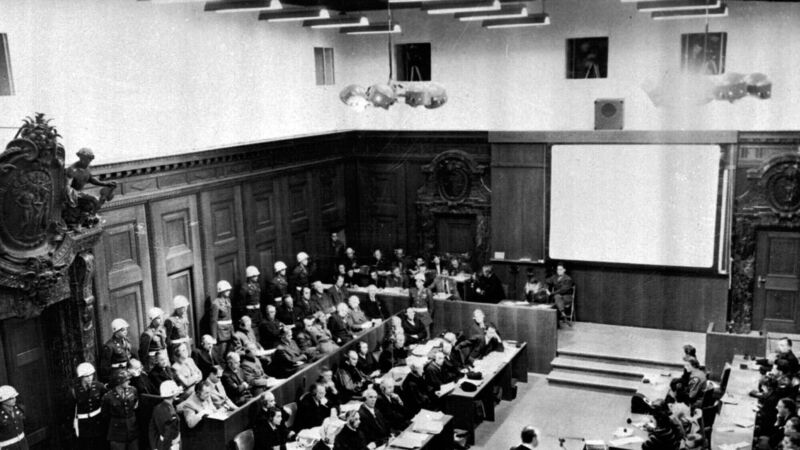Irish Examiner view: The rule of law remains paramount

Chief US prosecutor Robert Jackson addresses the bench at the Nuremberg War Crimes Trials in Germany in this Nov. 21, 1945 file picture. Prisoners are on left. It introduced the concept that no one could escape the consequence of their actions. AP Photo/Pool













